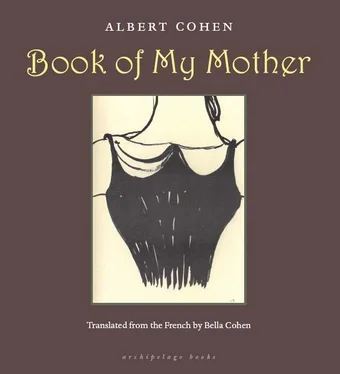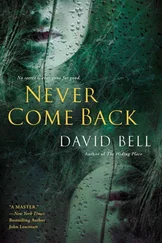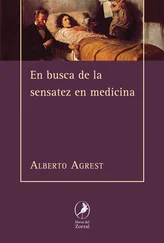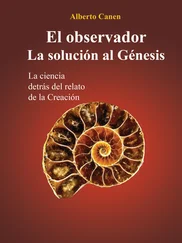At the Catholic sisters’ school there were no fees. There were two menus at lunchtime: a five-centime menu for the poor, which was rice, and a fifteen-centime menu for the rich, which was rice and a minute sausage. I gazed from afar at the menu for the rich, which I could devour only with my eyes. When I had fifteen centimes it was Paul, that ruthless charmer, who enjoyed the meal for the rich.
I remember that the Mother Superior — who kept us in order with large castanets called clappers, which beat time for our straggling processions along corridors reeking of disinfectant — sometimes sighed with regret as she gazed at the pretty child I was then, carefully shredding linen to make lint for hospitals, which was the main feature of the curriculum, or absorbed in the production of nauseous truffles. I made them by letting two bars of Menier chocolate melt in my tightly closed hand. And I would shake my fist idiotically, because that was supposed to help the process, the outcome of which was a sickening mash which left brown streaks all over my face and suit, a stupid pap which I shared with admiring classmates who came and licked it off my hand and which we called Bishop’s Delight. Yes, the Mother Superior, for whom I nurtured a respectful passion, sighed as she gazed at my black curls and sometimes murmured, “What a shame” — an allusion to my Jewish origin.
Strangely enough, I was the favorite of the gentle Catholic sisters. They used to give me deportment lessons and urge me to maintain a modest bearing and never swing my arms in the street as common boys did. Completely won over and full of admiration, determined to make no pact with the Devil, and sporting an enormous floppy tie, the memory of which makes me blush, I took care to walk in the street just as the sisters had advised, hands devoutly clasped and — right little idiot — eyes lowered as if in perpetual prayer. As a result my pious little person was constantly jostled by passersby or mocked by horrible kids from the State school, who called me papist and pelted me with stones, which I bore like a martyr to the cause of my beloved Catholic sisters, to whom their Albert today addresses a tender and respectful greeting.
Then, as my father’s affairs had improved, I was sent to secondary school when I was ten. I can see myself now at the age of ten. I had huge girlish eyes, peach-bloom cheeks, and a suit bought at the Belle Jardinière — a sailor suit with a white cord from which hung a whistle I loved to blow to make believe I was the son of a rear admiral who was also a lion tamer and a train driver, a heroic son and ship’s boy intrepidly sailing the seas with his father. I was a bit cracked. I was sure that everything I saw really and truly existed inside my head, absolutely real but on a very small scale. If I was by the sea, I was sure that the Mediterranean before me was also inside my head — not a picture of the Mediterranean but the Mediterranean itself, minute and salty inside my head, in miniature but real and with all its fish, though very tiny, all its waves, and a little burning-hot sun, a real sea with all its rocks and all its ships, absolutely complete inside my head, with coal and real live sailors, each ship with the same captain as in the world outside, the same captain, dwarf-sized, whom you could touch if your fingers were small and delicate enough. I was sure that inside my head, as in a circus version of the world, lay the real earth with its forests, all the horses on earth, though extremely small, all the flesh-and-blood kings, all the dead, the vast sky with its stars, and even God Himself, dinky as could be.
I can see myself now. I was loving, delighted to obey, so eager to be commended by grown-ups. I was keen to admire. One day after school I followed a general for two hours just so I could feast my eyes on his medals and revel in them. I was wild with respect for my general, who was very short and bowlegged. Every now and then I ran past him and then turned round suddenly and walked toward him so that I could gaze for a while upon his face wreathed in glory. I can see myself now. I was too gentle, I blushed easily, I fell in love quickly, and if in the distance I saw a pretty little girl I did not know — whose face I would notice, but nothing else — I immediately galloped for love, I cried out with the joy of loving, and my arms made little windmills of love. A bad sign, all that.
I had a secret altar to France in my room. On the shelf of a cupboard which I kept locked I had set up a sort of shrine to the glories of France, surrounded by tiny candles, bits of mirror, and little cups I made out of silver paper. The relics in the shrine were pictures of Racine, La Fontaine, Corneille, Joan of Arc, Du Guesclin, Napoléon, Pasteur, Jules Verne of course, and even a certain Louis Boussenard.
On my secret altar to France there were also a number of tiny French flags, which I had torn a bit to make them look more glorious, a little cannon on a lace doily near a President of the Republic — Loubet or Fallières, whom I thought was a genius — and the photograph of an unknown colonel, the rank I deemed the most distinguished and even more to be envied than that of the general, God alone knows why. Wrapped in gilt paper was a hair which a wag of a schoolmate had sworn was from the head of a soldier of the French Revolution and for which he had made me pay a very high price — at least a hundred apricot pits. Propped up against an eggcup was a dwarf-sized poem from me to France. Inside the eggcup were paper flowers standing guard over the photograph of a dear departed canary. Stuck on the walls of my minute temple were some little votive tablets on which I had inscribed lofty and original thoughts such as “Glory Be to France” or “Liberty, Equality, Fraternity.” Some Jewish conspiracy! The image of the Protocols of the Elders of Zion .
I remember that I had such a strong accent that my schoolmates jeered when I made ambitious plans to sit the baccalaureate. They said I would never write and speak French like them. Actually, they were quite right. Bernadet, Miron, Louraille — suddenly their illustrious names come back to me.
WE KNEW NO ONE in Marseilles. Poor but proud, we associated with no one. Or rather no one associated with us. But we did not admit it to ourselves, or perhaps we did not realize it. We were so naïve, so lost in the Western world, and so artless that when my parents lit a fire they did not use logs but thin sticks, which were immediately reduced to ashes. And, to crown it all, they took care to leave the protecting metal cover down till the end of the process, because they thought that was more hygienic. These two fugitives from the Orient, where it was always springtime and fireplaces were unknown, genuinely believed that flames left unscreened in that mysterious thing called a fireplace would emit deadly fumes. Was it not some such devilish contraption that had suffocated the man my mother used to call “the great Zola”? Of course she had read none of his books, but she knew he had defended Captain Dreyfus. (“Whatever gave that Dreyfus the idea of joining the army with a great big knife in his belt?” she would say. “Such jobs are not for us.”) Anyway, to come back to our heating system, we froze in front of a roaring chimney and lowered metal cover. We warmed ourselves in front of an icy noise.
We were social nobodies, completely isolated, cut off from the world outside. So in winter my mother and I would go to the theater together on Sundays, staunch friends, two shy, gentle creatures vaguely seeking in those three hours at the theater a substitute for the social life which we were denied. That misfortune shared and never before confessed is such a strong bond between my mother and me.
Читать дальше












